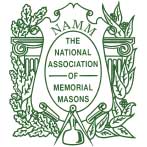New Mastic Asphalt RIBA CPD Presentation
 The Mastic Asphalt Council (MAC) has launched its first ever RIBA-approved CPD presentation entitled ‘Black to the Future’.
The Mastic Asphalt Council (MAC) has launched its first ever RIBA-approved CPD presentation entitled ‘Black to the Future’.
The presentation covers:
- What mastic asphalt is, its history and its relevance in today’s market
- Performance benefits such as durability, waterproofing and fire safety
- Specification of mastic asphalt to achieve sustainability targets
- Design considerations when specifying mastic asphalt versus alternative materials
- Diversity of mastic asphalt applications
The new RIBA-approved presentation lasts approximately one hour and counts towards CPD points. To arrange a CPD presentation, please email This email address is being protected from spambots. You need JavaScript enabled to view it., call 01273 242 778 or visit RIBA online here.
Training in lime by Cornish Lime Company

As experts in the field of lime-based and associated products Cornish Lime believes it is our responsibility to pass on that knowledge to both trade professionals wishing to know more about traditional building materials and members of the public wanting to have a wider knowledge of what is the best renovation solution for their historic or traditional property.
Courses in Stained Glass by Labrynth Stained Glass Studios
 Come and learn the ancient craft of stained glass in my purpose built studio, set in the beautiful and quiet Sussex countryside.
Come and learn the ancient craft of stained glass in my purpose built studio, set in the beautiful and quiet Sussex countryside.
There are courses to suit all abilities, come and have fun with a group of friends and make a stunning piece of stained glass.
Read more: Courses in Stained Glass by Labrynth Stained Glass Studios
PASMA Towers for Users Course
 The PASMA Towers for Users Course delivers instruction and training aimed at giving competence in assembling, altering, inspecting, moving and dismantling mobile access towers. This nationally recognised course is designed for a maximum of 12 candidates. This course consists of training room instruction with written assessment and practical training and assessment on both of the current approved tower assembly methods, 3T (Through the Trap) and AGR (Advanced Guard Rail).
The PASMA Towers for Users Course delivers instruction and training aimed at giving competence in assembling, altering, inspecting, moving and dismantling mobile access towers. This nationally recognised course is designed for a maximum of 12 candidates. This course consists of training room instruction with written assessment and practical training and assessment on both of the current approved tower assembly methods, 3T (Through the Trap) and AGR (Advanced Guard Rail).
MSC/PGDIP/PGCERT Building Conservation and Regeneration
 MSc Building Conservation and Regeneration is designed for people who are interested in historic buildings and towns and in the remarkable changes that have taken place in towns and cities up and down the country.
MSc Building Conservation and Regeneration is designed for people who are interested in historic buildings and towns and in the remarkable changes that have taken place in towns and cities up and down the country.
Our major urban centres have been going through a period of regeneration, the scale of which has not been seen since the post war period of the mid-20th century. This can all have a major impact on historic buildings and towns and on people’s lives.
Read more: MSC/PGDIP/PGCERT Building Conservation and Regeneration
National Association of Memorial Masons - NAMM
 Burial authorities have a duty of care to all those using the site and in particular the qualification and competence of those working there.
Burial authorities have a duty of care to all those using the site and in particular the qualification and competence of those working there.
For that reason, and for the peace of mind of the family, it is essential that the company chosen to supply and erect the memorial are suitably accredited.
Safety Inspections and Assessments of Memorials in Burial Grounds
 Many burial authorities now insist that masons working on their premises are members of a recognised certification scheme, such as the Register of Qualified Memorial Fixers (RQMF) which was set up by NAMM in 2009, although it is independent of the association and open to any suitably qualified business or individual.
Many burial authorities now insist that masons working on their premises are members of a recognised certification scheme, such as the Register of Qualified Memorial Fixers (RQMF) which was set up by NAMM in 2009, although it is independent of the association and open to any suitably qualified business or individual.
Read more: Safety Inspections and Assessments of Memorials in Burial Grounds
Access Training – Accessibility Overview
 About Access provides training in different ways, from an informal meeting with members of a trade association or professional body, to specific issues around disability or the built environment. It might be delivered to a range of businesses off-site, generating valuable interaction and enabling them to learn from each other’s experience, or it might be in-house, direct to clients at their own premises.
About Access provides training in different ways, from an informal meeting with members of a trade association or professional body, to specific issues around disability or the built environment. It might be delivered to a range of businesses off-site, generating valuable interaction and enabling them to learn from each other’s experience, or it might be in-house, direct to clients at their own premises.
We offer access audit training, disability awareness training, user needs, disability provisions within the Equality Act. It can be prompted by fresh guidance on disability issues, new premises, changed layout of premises, new staff. It is relevant to staff at all levels from senior management to shop-floor and customer-facing staff.
IHBC Recognised Courses
 The IHBC, in its Memorandum and Articles, recognises that historic environment conservation courses can contribute significantly to the wide-ranging skills sets required of a Full Member of the institute.
The IHBC, in its Memorandum and Articles, recognises that historic environment conservation courses can contribute significantly to the wide-ranging skills sets required of a Full Member of the institute.
Consequently, graduates of these courses with just two years of relevant professional experience can apply to become a Full Member of the institute. This is in contrast to the five years of relevant practice required of other applicants.






